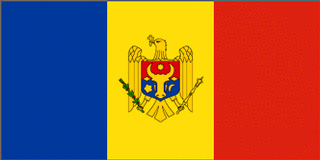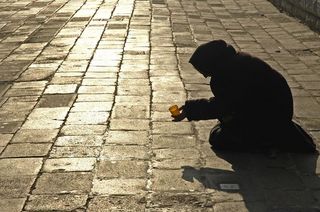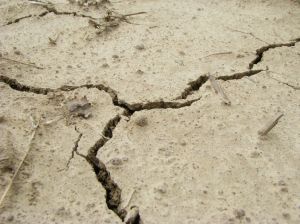European Union supporters in Latvia and Estonia expressed concern Thursday about a new survey pegging their countries as the most EU-skeptical in Europe
Published:
4 August 2003 y., Monday
European Union supporters in Latvia and Estonia expressed concern Thursday about a new survey pegging their countries as the most EU-skeptical in Europe—findings that come just two months before both Baltic states hold referendums on membership. A mere 32 percent of Estonians and 37 percent of Latvians agreed entry would be "a good thing," making them the most pessimistic of those questioned in the EU study released Wednesday. By contrast, 72 percent of Cypriots and 61 percent of Poles said joining would be good for them.
Latvia and Estonia will be the last of 10 EU candidate countries to put the issue of entry to a vote—and observers say there's now a chance that one or both nations could become the first to reject membership in Europe's most powerful multilateral club.
"People are afraid, they don't know what to believe and they're confused," said Pille-Mai Helemae, spokeswoman for the high-profile "Yes to the EU" group in Estonia. "It's going to be a hard fight. But in the end, I'm sure enough people will see more pros than cons to membership." Confusion about the EU was illustrated in the biannual Eurobarometer _ which questioned 1,000 people in each candidate nation in May—with 62 percent of Latvian and 71 percent of Estonian respondents saying they were either poorly informed about the accession process or not informed at all.
The Czech Republic, Hungary, Lithuania, Poland, Slovakia, Slovenia and Malta have already approved EU referendums, most by wide margins. Cyprus is leaving it's decision to lawmakers. If Estonia and Latvia pass their plebiscites on Sept. 14 and Sept. 20 respectively, they would join the EU together with the other candidates in 2004.
Virtually all top leaders in Estonia and Latvia have been pro-EU since the Baltic Sea nations regained independence—arguing that entry will raise their nations international stature, forge vital European trade links and boost living standards.
But official enthusiasm has never been matched outside the halls of power, with many Estonians and Latvians fearing a loss of sovereignty to the EU. Anti-EU groups compare what they say is an overly centralized EU with the U.S.S.R.; one of their symbols is an EU flag stamped with a Communist hammer and sickle.
If the results of the latest survey spooked EU supporters, they delighted opponents. "If you're a EU supporter, I believe the picture is even blacker," said Uno Silberg, who heads Estonia's "No to the EU Movement." "We're confident the referendum will fail."
Šaltinis:
balticsww.com
Copying, publishing, announcing any information from the News.lt portal without written permission of News.lt editorial office is prohibited.
The most popular articles
 The fate of blue fin tuna hangs in the balance this week as a complete ban on the trade is debated by MEPs.
more »
The fate of blue fin tuna hangs in the balance this week as a complete ban on the trade is debated by MEPs.
more »
 A $100 million pledge from the Government of Japan has helped to secure the funding base and launch the operational phase of two new climate programs supporting forest management and renewable energy investments in developing countries.
more »
A $100 million pledge from the Government of Japan has helped to secure the funding base and launch the operational phase of two new climate programs supporting forest management and renewable energy investments in developing countries.
more »
 Europeans quite happy with their personal situation, but less satisfied with economic and social climate in their country.
more »
Europeans quite happy with their personal situation, but less satisfied with economic and social climate in their country.
more »
 Spain wishes to “make as much progress as possible” to ensure the EU becomes party to the Council of Europe's Convention for the Protection of Human Rights and Fundamental Freedoms soon, according to the Spanish Minister for Justice, Francisco Caamaño, at today's opening of a seminar on the challenges and possibilities arising from the Treaty of Lisbon coming into force.
more »
Spain wishes to “make as much progress as possible” to ensure the EU becomes party to the Council of Europe's Convention for the Protection of Human Rights and Fundamental Freedoms soon, according to the Spanish Minister for Justice, Francisco Caamaño, at today's opening of a seminar on the challenges and possibilities arising from the Treaty of Lisbon coming into force.
more »
 According to Belarusian tradition, a stork brings good fortune to the village it settles in while in western culture the stork is commonly associated with childbirth.
more »
According to Belarusian tradition, a stork brings good fortune to the village it settles in while in western culture the stork is commonly associated with childbirth.
more »
 The World Bank Board of Directors today approved an additional financing credit to the Republic of Moldova in the amount of US $20 million for the Social Investment Fund II Project.
more »
The World Bank Board of Directors today approved an additional financing credit to the Republic of Moldova in the amount of US $20 million for the Social Investment Fund II Project.
more »
 The Spanish Health and Social Policy Minister, Trinidad Jiménez, and the European Commissioner for Employment, Social Affairs and Equal Opportunities, Vladimir Spidla, addressed the press in Madrid on the launch of the European Year for Combating Poverty and Social Exclusion 2010.
more »
The Spanish Health and Social Policy Minister, Trinidad Jiménez, and the European Commissioner for Employment, Social Affairs and Equal Opportunities, Vladimir Spidla, addressed the press in Madrid on the launch of the European Year for Combating Poverty and Social Exclusion 2010.
more »
 The European Commission and the Spanish Presidency of the EU will tomorrow launch the 2010 European Year for Combating Poverty and Social Exclusion.
more »
The European Commission and the Spanish Presidency of the EU will tomorrow launch the 2010 European Year for Combating Poverty and Social Exclusion.
more »
 Smoking at a restaurant like this one in Spain could soon be a thing of the past. Spanish lawmakers want to stub out the habit in public places like bars and restaurants. But it's an unpopular proposal in a country where around 30 percent of the population smoke.
more »
Smoking at a restaurant like this one in Spain could soon be a thing of the past. Spanish lawmakers want to stub out the habit in public places like bars and restaurants. But it's an unpopular proposal in a country where around 30 percent of the population smoke.
more »
 As President of the European Economic and Social Committee, I would like, on behalf of all the Committee's members, to express my sympathy to the victims of the earthquake in Haiti.
more »
As President of the European Economic and Social Committee, I would like, on behalf of all the Committee's members, to express my sympathy to the victims of the earthquake in Haiti.
more »